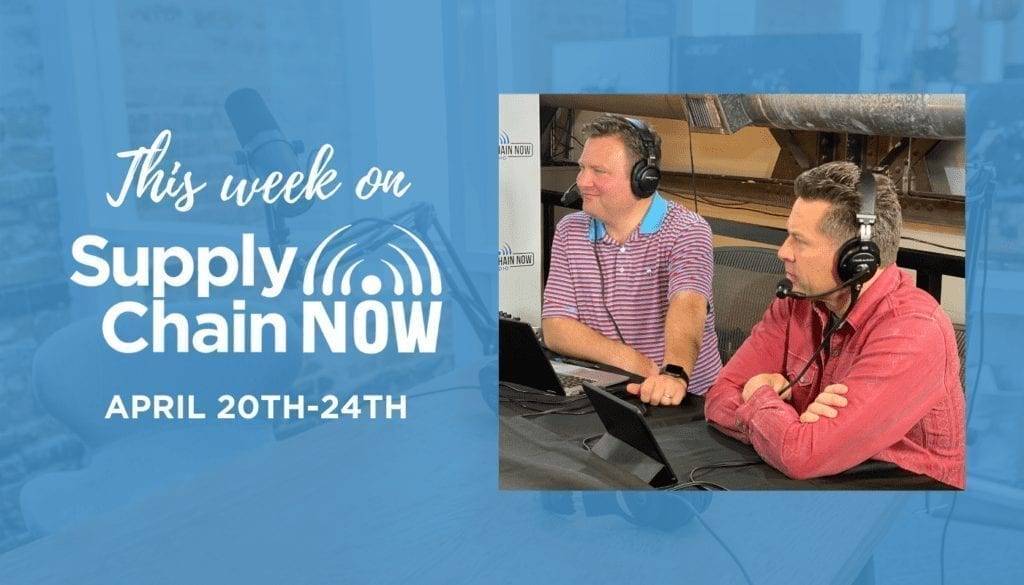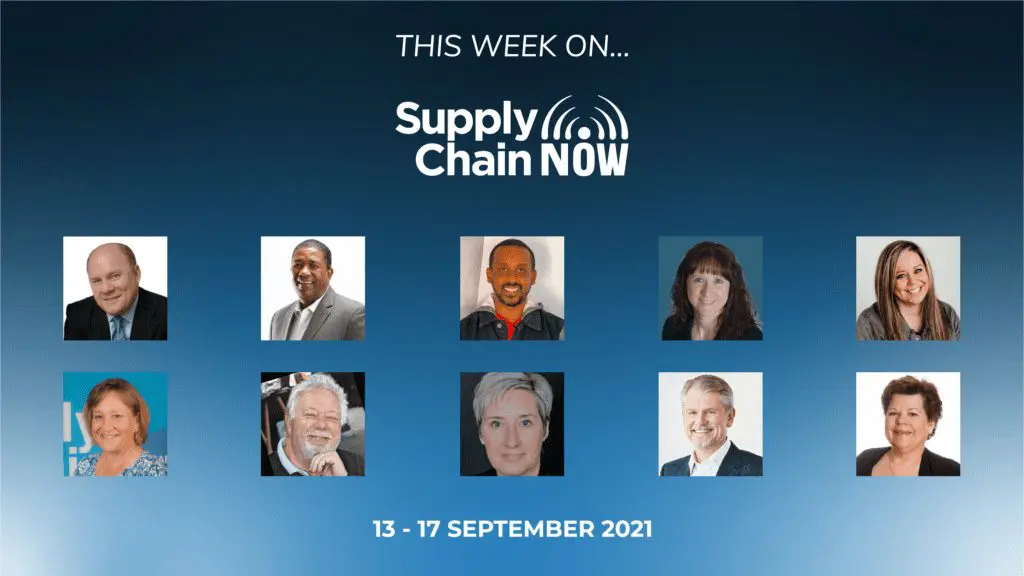
More

April 24, 2020
This Week on Supply Chain Now: April 20-24
It has been another busy week for Supply Chain Now! Did you catch all the episodes? If not, no worries! Check them all out here: We started out the week with a new episode in our Logistics with a Purpose series sponsored by our good friends at Vector Global Logistics. Listen as Scott, Greg, and Enrique have a great conversation with Mickey Horner with Rise Against Hunger. On Tuesday, Scott and Greg were joined by AIAG’s CR Summit speaker Joerg Walden, CEO of iPoint. Then we published the new and improved Supply Chain Buzz, with Scott and Greg sharing and discussing the latest news and events in Supply Chain and beyond. Scott and Greg were joined by Randy Strang with MedShare on Thursday for another episode in the Logistics with a Purpose series, sponsored by Vector Global Logistics. And to wrap up the week, Scott and fellow host Fred Tolbert with Demand Solutions were proud to host three exceptional Supply Chain students from the University of Georgia’s Terry College of Business.

September 17, 2021
This Week In Supply Chain Now: September 13th – September 17th
Stay up to date on all the latest conversations, interviews, and episodes we released this week here at Supply Chain Now! On Monday we started the week off with an episode of Supply Chain Now with Scott Luton and TEKTOK host Karin Bursa! The two welcomed COO of SAPICS, Jenny Froome, and the Business Development Executive at SAPICS, Tonya Lamb. On Tuesday, we published a new episode of This Week In Business History with host Kelly Barner. On Tuesday, Scott reflects on the 2021 global summit with Lora Cecere, Kelly Barner, and Kevin L. Jackson. These four talk about some of the most impactful conversations that happened during the event, including effective leadership and how it goes hand in hand with supply chain planning, and more. On Wednesday we released an episode of Logistics With Purpose. This episode features Henok Berhanu, Founder & CEO of Carry 117, and Ashley Bohinc, Executive Director of Carry 117. On Thursday we published a new episode of the Freight Insider with host Page Siplon. Page welcomed Christian Fischer, President and CEO of Georgia Pacific, to the show. On Friday, we published the podcast version of our Monday Supply Chain Buzz livestream, with special guest,…
